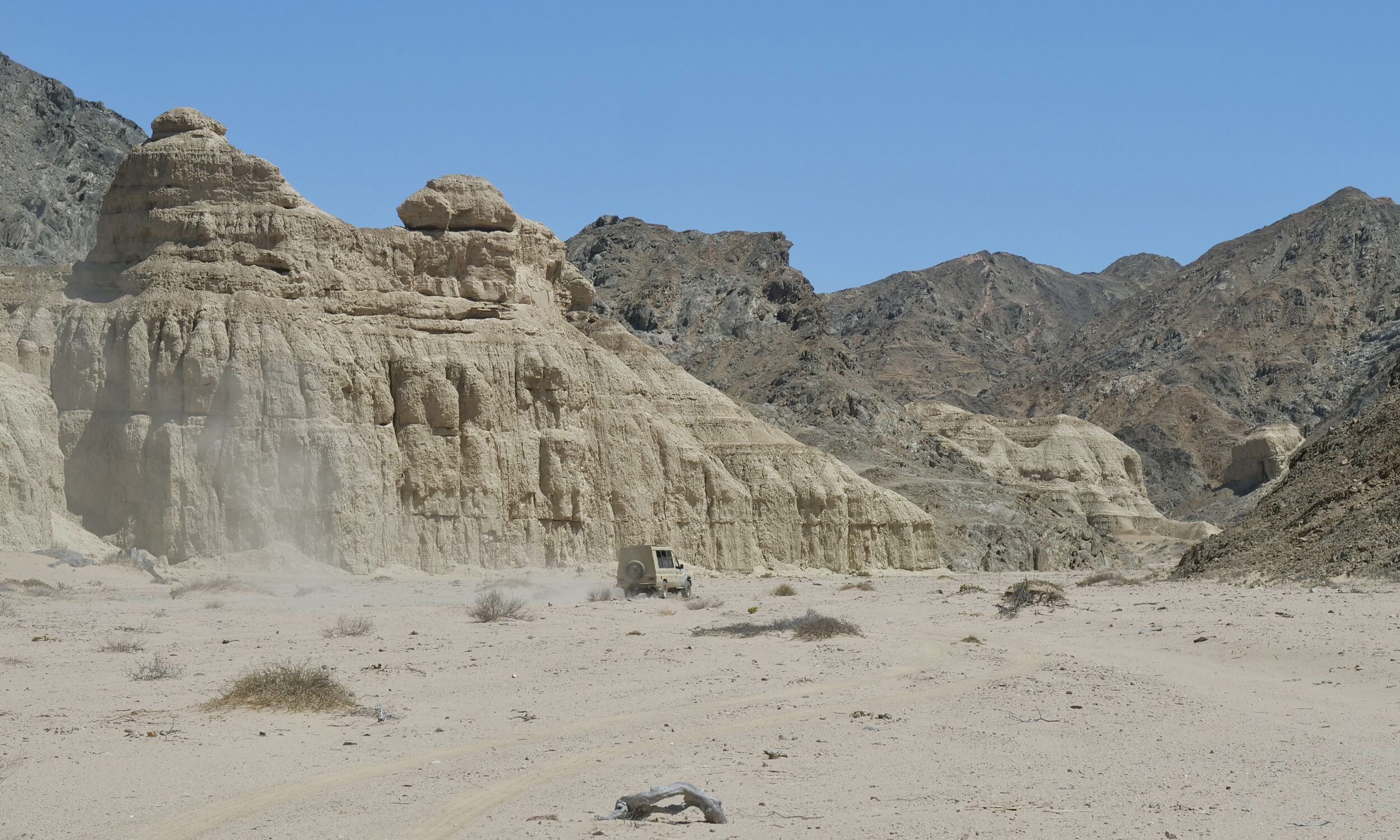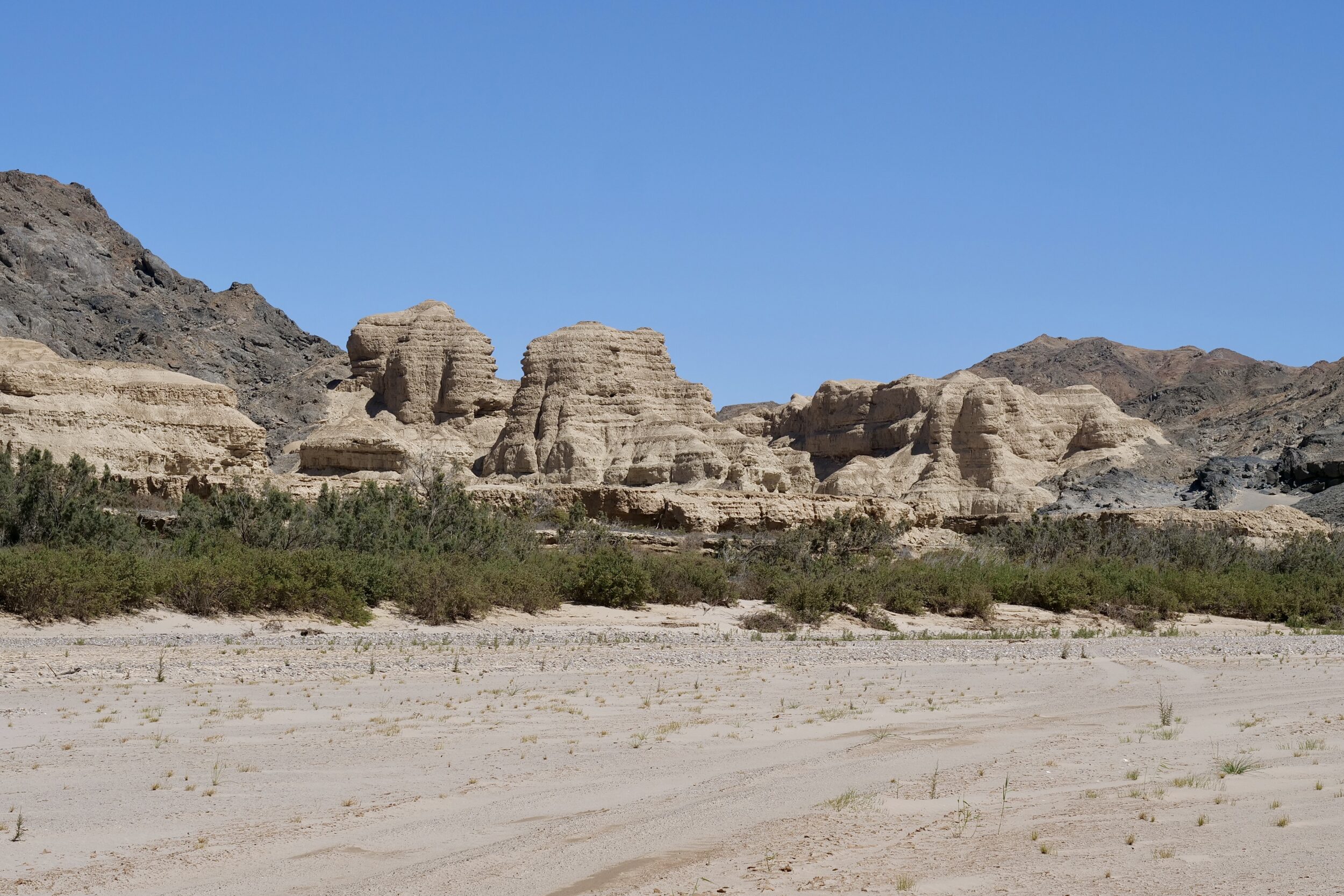The Hoarusib is one of several ephemeral Namibian desert rivers that have generated so-called “sand castles”, or “clay castles”.
These extraordinary landforms’ origins and age are shrouded in mystery, speculation, and competing theories.
I am quite unable to offer a definitive explanation, other than to quote some good sense from Roger Swart:
…there is abundant evidence that the silts were deposited by high-energy flows, separated by times of calm……The most likely explanation for the deposits is therefore flash floods during a wet period, which would have brought down a heavy sediment load that was dumped when the energy of the river waned.
The quotation is from Landshapes: The Geomorphology of Namibia.
Originally published in 2009, then reprinted in 2018, the book is a fine combination of geologist Dr Swart’s readily-intelligible text, with beautiful watercolour illustrations by Christine Marais (1935 – 2012).
You are unlikely to find a copy in any Australian bookshop, but it is still available, online; this is a Namibian source.

Estimates of the age of these “castles” vary hugely, from several hundred to many thousands of years.
The next post will give you a closer view of them.
